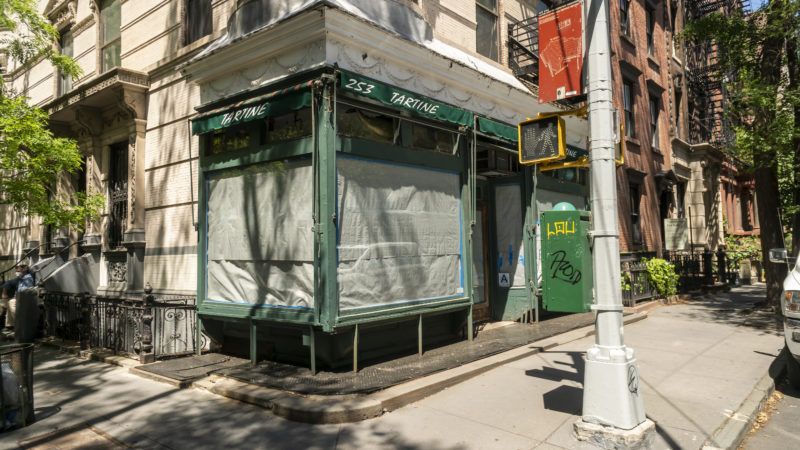As New York City Reopens, Businesses Balance Public Health and Staying Afloat
Phase 2 of Bill de Blasio's plan lets 300,000 New Yorkers start working again. But not all of them will rush back to the office.

On Monday, New York City officially entered Phase 2 of its reopening plan, having recorded record-low COVID-19 infection rates in the previous week.
The new phase expands which types of businesses can open their doors. Salons, barbershops, offices, and retail stores are all allowed to reopen with proper precautionary measures, as are playgrounds and places of worship.
The previous phase had been restricted to low-contact industries such as construction, with retail service limited to curbside pickup.
In addition, the city's Open Restaurants plan will allow restaurants to expand from takeout and delivery to limited outdoor dining. Restaurants have particularly suffered from coronavirus-related loss of business: According to the Wall Street Journal, 53 percent of shuttered restaurants on Yelp have permanently gone out of business, compared to 35 percent of closed retail outlets.
The Open Restaurants program would allow restaurants to use sidewalks and curbs, as well as existing patio space, to set up tables and chairs for outdoor dining this week; seating is supposed to expand to open streets on nights and weekends by July. Mayor Bill de Blasio believes the plan could save up to 5,000 businesses and 45,000 jobs.
Phase 2 also allows many more New Yorkers to return to the workspace after three months of remote work or joblessness. De Blasio estimates that 300,000 people could get back to work following this loosening of restrictions.
The reopenings will also benefit New York's public transit system, which has suffered heavy financial losses due to underuse. The MTA expects Phase 2 to increase daily subway ridership to 1 million New Yorkers—a far cry from last year's average of 5.5 million, but a change from just 366,000 at the peak of New York's outbreak.
New York's Phase 2 guidelines are still as arbitrary as one could expect from a state reopening plan. While offices, salons, and retail stores have been permitted to operate at half capacity, churches are restricted to just 25 percent. Playgrounds will finally reopen (with appointed "social distancing ambassadors" at New York's 1,700 parks), but team sports are banned.
In light of unclear city guidelines and lingering uncertainty about the pandemic's path, businesses continue to set their own safety criteria beyond the government's recommendations, permitting many employees to work from home for the foreseeable future.
Early signs suggest that a lot of those workers will stay at home even if the government says they're welcome to commute. One real estate company reported that just 5.2 percent of its employees reported back to its reopened offices on Monday. And a survey by the Partnership for New York City found that across 60 Manhattan-based businesses, just 10 percent of the workforce will return to the office by August.


Show Comments (30)